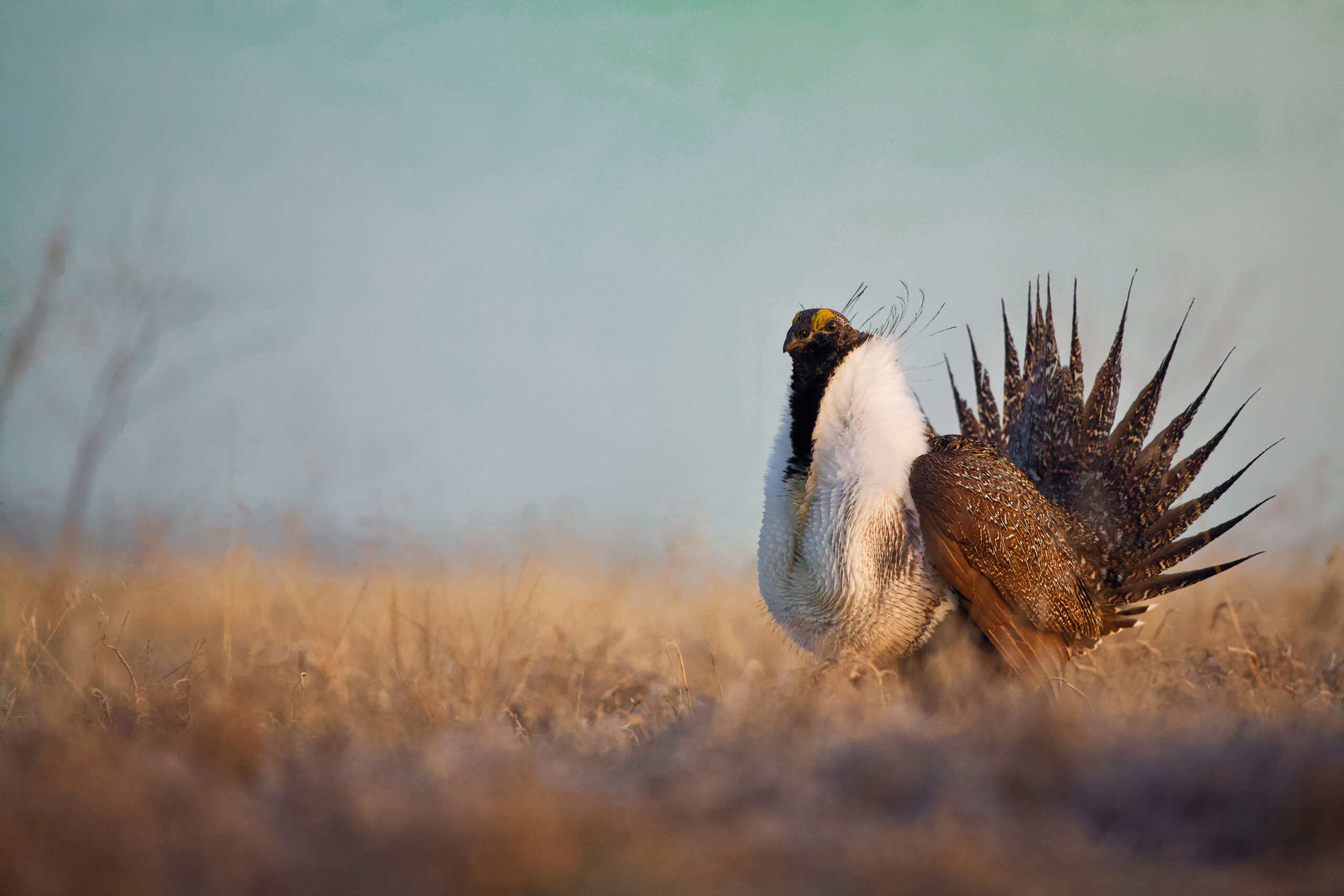From the moment it leaped out of captivity on January 12, 1995, the wolf has been fruitful and multiplied and replenished the earth. From a dozen Canadian transplants, 1,700 individuals in 250 packs now roam our Rocky Mountain wilds.
So, victory for the Endangered Species Act? Not exactly. The biological beast runs free. But the symbolic wolf remains caged in purgatory between science and emotion; state and federal officials; activists and ranchers; tourists and hunters. Now, in an unprecedented federal controversy, the wolf has thrust America’s legislative branch against our judicial branch against our executive branch over whether the species has recovered enough to let states control it this fall by hunting.
So, how many wolves is “enough?” This question tests our national and cultural comfort zone; views range from zero to a million. After decades of paralysis it is time we shut up and answered with our wallets.
That’s right. As a hunter, lifelong environmentalist, and wolf advocate at the U.S. Department of the Interior during the 1990s, I have a modest proposal: de-politicize the warmblooded wolf by trusting its fate to cold market forces; let Montana and Idaho sell their peer-reviewed scientific quota of wolf hunting permit but ensure each license can be bought and sold on an auction block open to all U.S. citizens.
Heartless? Get over it. The truth is that Canis lupus has always lived and died with a price on its head. Greek officials in A.D. 46–120 paid five silver drachmas to a hunter for bringing in a dead male wolf. In 1630, America’s pilgrims established the first colonial wolf bounty for the big bad antagonist of Old World fairy tales who threatened farm piglets and red-robed daughters. Within 300 years President Teddy Roosevelt was annually subsidizing the killing of 55,000 “beasts of waste and destruction.”
Then Aldo Leopold—writer, hunter, game warden, wolf eradicator—had a religious conversion on the road to lupine extinction. He urged us to respect this alpha predator not as our moral equal, nor as a novelty, nor to commune with wild spirits, but because wolves completed our ecological community of interdependent subjects.
At that point, the market shifted. If cash killed off the ‘sinister’ species, cash brought ‘charismatic megafauna’ back to life. When passions ran high, cash cooled tempers. When ranchers stalled wolf reintroduction in court, environmental groups—namely Hank Fischer of Defenders of Wildlife— broke the political deadlock by offering livestock owners cash compensation for documented wolf kills.
That approach worked wonders. By recognizing the marginal value of wolf costs, he put an equal value on wolf benefits, which have grown considerably. Today wolf-obsessed tourists annually infuse the regional economy with $35 million in revenues, eclipsing total reintroduction expenses and ensuring there’s no turning back.
Which begs our question: Why not extend incentives indefinitely to determine how many wolves should exist in Montana, Idaho, or America? Leverage the price paid per wolf ’s head for the advantage of all species, whether Canis lupus or Homo sapiens.
This fall, a Montana hunter can bid $19 or an out-of-state hunter can bid $350 for one of 75 licenses to kill a wolf and mount it in his den. Lupine lovers are outraged, but the only real scandal is that the license is so—ridiculously and unnecessarily— low. Public officials are leaving behind a potential windfall on the table, which it could collect through a fair and democratic open auction of each wolf hunting license.
Montana Fish, Wildlife, and Parks already knows how to run such an auction; it does so for bighorn sheep, moose, mountain goat, deer and elk hunting licenses. The difference is that a wolf auction would not be restricted to hunters. Indeed, an out of state “tree-hugger” or “animal rights nut” could bid $351 or, hell, $9,351 for that same permit in order to let the formerly marked wolf run free for another year. The extra $1 (or $9,001) raised could help endow a national fund to compensate livestock owners.
Wait, couldn’t an open auction just trigger a nationwide bidding war between hunters and howlers? Wouldn’t competing groups and individuals start offering tens of thousands of dollars to decide whether a single wolf lives or dies? Might it unleash a crass commercial value on whether we stop or spread the call of the wild? Should amoral transactions determine how much an untamed howl is worth to us as a nation?
Yes, yes, yes and, absolutely and emphatically—yes. That is exactly the point. An open auction of wolf hunting permits explicitly quantifies what has been vague: Americans are split between those who loathe and love wolves. It then offers an honest, transparent, and accountable cost-benefit resolution to this division, a new way to measure our national tolerance.
Right now, both sides cancel each other out, lose-lose. Pro-wolf and anti-wolf advocates alike have financed political campaigns, emotional crusades, escalating lawsuits, and public relations ranging from glossy books and witty bumper stickers to coffee mugs and calendars. An auction would break the protracted stalemate, take politics out of the equation, and ensure private investments yield public dividends.
First, it harnesses passions to test, measure, and improve our character. Auctions would unlock and spread accountability, individual liberty, and responsibility.
Next, it shrinks the burden of government officials. Auctions remove the impossibility of a fair decision from judges, legislators, bureaucrats, scientists, and wildlife managers who sweat under pressure to please all sides at all times all at once.
It transforms both the physical and symbolic wolf from a looming liability into a desirable asset. Funds raised by auctions would flow into the coffers of cash-strapped and budgetslashed state wildlife managers, who could then reinvest funds into dozens of other worthy and science-based programs or wildlife habitat.
It improves the Endangered Species Act. Instead of slicing up a shrinking budget, auctions grow the pie with cash infusions, helping states focus on proactive habitat restoration over emergency room invasive surgery of critical species.
Finally, consider the ripple effect as controversy subsides. Anxious neighboring states—Utah, Oregon, Washington, Colorado—might be inclined to welcome, encourage, and actively reintroduce wolves if they knew of the financial bonanza from an open national auction that awaits recovery, delisting, and hunting opportunities.
Paraphrasing Voltaire, I may disapprove of your desire to hunt a wolf legally, but I will always defend your right to do so. At that point the question becomes: How much would you pay Montana for a license to kill, and how much would I counter your bid to ensure it howls on and on for at least one more year?
Open up the auction and let’s find out.




